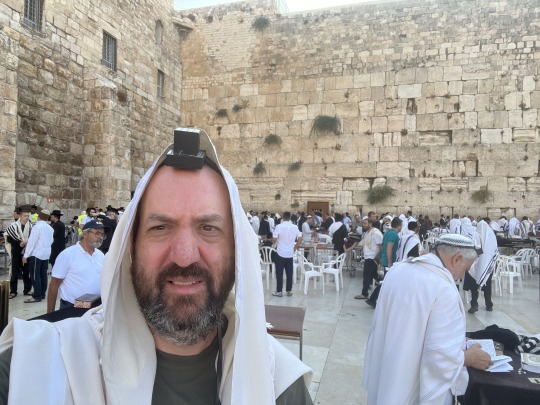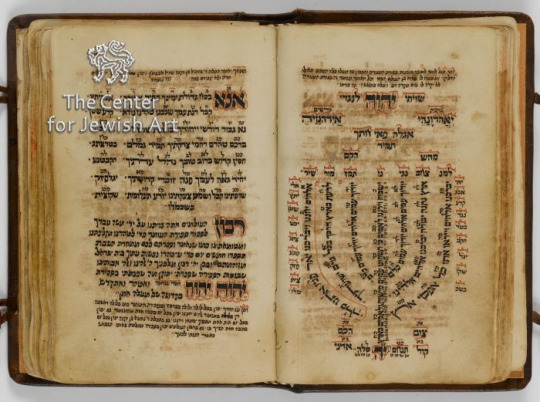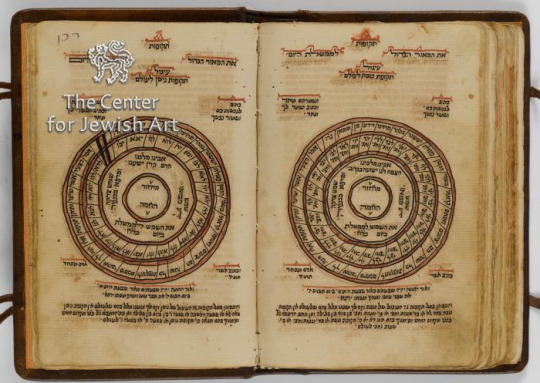#selichot
Explore tagged Tumblr posts
Text

Raylan Givens
Elul- "The King is in His field"
15 notes
·
View notes
Text

Chatanu l'fanecha racheym aleynu
We've missed the mark, have mercy.
#Chatanu l'fanecha racheym aleynu#We've missed the mark#have mercy.#selichot#adon ha'slichot#gut yontif#jumblr
135 notes
·
View notes
Text









סְּלִיחוֹת The Selichot are penitential poems and prayers that are recited in a forty day period leading up to the Holiest Holiday of Yom Kippur. Through praying, we align our intentions to purify and seek for forgiveness. The Selichot hold the wonder of shining frequencies associated with forgiveness, mercy, love of God, and peace. The Thirteen Attributes of God’s Mercy are a central theme throughout the prayers.
These prayers uplift our spirit, give us strength, nurture healing, and align our thoughts and actions toward a goodwill mindset of love, goodness, and wellbeing. The Selichot prayers embody the Divine spiritual energies that feed our souls, elevate our spirits, and fill our hearts with elements of faith, healing, hope, and harmonic Oneness synergy.
Over thousands of years, temples, synagogues, and houses of worship have empowered humankind to connect with the spirit of the Divine Source and dwell in God's Sacred Presence. In these Sacred spaces of holiness, worship and prayers blend with heartfelt rituals and ceremonies that form a spiritual portal, channeling a connection between Earth to higher dimensions of Divinity. Praying with true deep intention takes us on an elevating voyage to an inner Sacred sanctuary that activates our force of will to be whole and holy, unifies our tribal alliance, and facilitates our will to reconcile, as we all, both individually and collectively, draw closer to God.
#selichot#faith#sacred#holiness#holyland#prayers#jewish#judaism#forgiveness#mercy#yom kippur#roshhashanah#tishrei#jewish new year#jewish holidays
9 notes
·
View notes
Text
Leaving Shule after S'lichot service vibes

#damn just gonna leave me with all this self reflection#gotta keep that shofar blasting in my head#jumblr#slichot#selichot#high holidays#rosh hashanah#yom kippur
3 notes
·
View notes
Text
The 13 Attributes of God’s Mercy: A Guide to Compassion and Forgiveness

In Jewish tradition, the 13 Attributes of God's Mercy are a powerful expression of divine compassion, revealed to Moses after the sin of the Golden Calf (Exodus 34:6–7). These attributes serve as a cornerstone of Jewish theology, particularly during times of reflection, repentance, and prayer, such as Yom Kippur and Selichot.
God's attributes aren't just a description of His essence—they are an invitation for us to emulate His ways, to bring mercy and forgiveness into our own lives.
What Are the 13 Attributes of Mercy?

The attributes, drawn from the Torah, are as follows:
Adonai – God is compassionate before a person sins.
Adonai – God is compassionate after a person sins, allowing for repentance.
El – A mighty God who shows mercy and kindness.
Rachum – God is merciful, feeling the pain of His creations.
Ve’chanun – God is gracious, offering kindness even when undeserved.
Erech Apayim – Slow to anger, granting time for reflection and change.
Rav Chesed – Abundant in lovingkindness and unwavering commitment to His promises.
Ve’emet – Truthful and consistent in His word and actions.
Notzer Chesed La’alafim – Preserving kindness for thousands of generations.
Nosei Avon – Forgiving intentional sins.
Va’fesha – Forgiving rebellious sins and defiance.
Ve’chata’ah – Forgiving inadvertent mistakes.
Ve’nakeh – Cleansing and purifying those who return to Him.
Why Do These Attributes Matter?
At their core, these attributes represent a God who is not only just but overwhelmingly compassionate. They remind us that even in our failures, we are not beyond forgiveness. The repetition of "Adonai" emphasizes a constant readiness to show mercy, before and after we stumble.
Living by the Attributes

Judaism teaches that "as God is merciful, so should you be merciful." The 13 Attributes inspire us to:
Forgive others, even when they don't "deserve" it.
Exercise patience when we are wronged.
Show kindness in abundance, as there is no limit to love.
Reflect and Share

Take a moment today to reflect on how you can embody these divine traits. Can you be slower to anger? More forgiving? Let’s carry this blueprint for compassion into our daily lives, making the world a little brighter, one act of mercy at a time.
What do these attributes mean to you? Let me know in the comments or reblog with your thoughts! 💬
#Judaism#Torah#13AttributesOfMercy#GodsMercy#JewishTradition#YomKippur#Selichot#Repentance#Forgiveness#Compassion#Faith#Reflection#JewishTheology#Spirituality
3 notes
·
View notes
Text
One of my favorite piyutim, even though I'm Ashkenazi, and I like this rendition. I have a whole Spotify playlist of High Holiday music, but I can't figure out how to share it here.
4 notes
·
View notes
Text
Elul Thoughts: Finding Renewed Ways to Connect
As I continue to reflect on my recent trip to Israel, one of the things that always strikes me when I am there is how comfortable I feel in Israel. This has many layers, from religiously and spiritually as well as I get a sense in certain parts of the country that it is like I am home. This makes travelling less fraught with worries and anxieties. And, this does also have a shadow side. During…

View On WordPress
#Alei Deshe#elul#growth#inspiration#Israel#Jerusalem#journey#journeying forward#Kotel#new beginnings#new beginnings spiritual coaching and consulting llc#new experiences#Psalm 27#Rosh Hashanah#sacred space#selichot#spiritual growth#Spirituality#Torah thought#Torah thoughts
0 notes
Text
#my campus only has ashki selichot so i’ve just been listening to sephardic selichot#bro they go soooo much harder lmaoo#gabi what#jumblr#Spotify
1 note
·
View note
Text


שנה טובה ומתוקה!
For the past month of Elul (and for this past week for the Ashkenazim lol), we have been reciting selichot, preparing for Yammim Noraim, the days of awe. And finally, tonight is the start of Rosh Hashanah.
So what’s so special? Why did we take the extra time to prepare? Isn’t it just the start of a new year, Nothing more?
There are two reasons why we blow the shofar on Rosh Hashanah:
One is a wake-up call, now is the time to do Teshuvah, now is the time to return to Hashem. We’ve sinned, we’ve transgressed, but now is the time to do better. We can always come back on the derech, the path.
Like how a king is announced with trumpets. Reason number two for the blowing of the shofar is that we are pronouncing Hashem as King of kings, Master of masters, and Host of hosts. We’ve grown comfortable throughout the year and we remind ourselves now of Hashem’s greatness while we renew our covenant with Hashem.
This year, when you hear the Shofars blows. Take the time to feel, to acknowledge, and to appreciate. May you have a year as sweet as Apple and Honey. Be plentiful in Mitzvot like a Pomegranate is in its seeds. And always dwell in the house of Hashem.
לשנה טובה ומתוקה
-רנה 3>
#jumblr#jew stuff#judaism#rosh hashanah#frumblr#jewish art#jewish artist#jewish#judaica#(Shanah Tovah)
407 notes
·
View notes
Text
I may or may not have been using the wrong word. Plus, I'm not an expert. I'm that one person who chose to learn Tanakh instead of Literature. But, from what I understand, Sepharadi poetry standard is having the exact same amount of syllables every line, but it goes slightly deeper: they divided the vowels in Hebrew to two types: Tenu'ah, which is a full vowel, and Yated, which is a half vowel (or Schwa, which is also considered a half vowel). And you have to have them by the exact right order.
In modern Hebrew, we barely if at all differentiate between the 'Hatafim (the half-vowels) and the regular vowels, thus making remembering which is which is hard. Plus, I have just about zero idea about the standard order. A cursory search shows that it is as follows: Yated, Tenu'ah, Tenu'ah; Yated, Tenu'ah, Tenu'ah; Yated, Tenu'ah. Making every line have five syllables, because a Yated doesn't count.
Hello. Today, I'd like to make some random anecdotes about Rabbi Avraham Ibn Ezra - poet, commentator, linguist, mathmatician, probably not too bad at chess and cursed to be poor for the entirety of his life.
After a cursory look at his wikipedia page, I must admit I didn't really know much about his life: only that he was born and raised in Spain, went travelling, had terrible luck with everything, wrote his commentaries on the Torah for money (which I think didn't help with the "cursed to be poor" thing), befriended Rabbenu Tam in France, possibly married the daughter of Rabbi Yehudah HaLevi and promptly died... somewhere... oh, and also wrote lots of poetry in the middle.
Historically speaking, he lived at the end of the Golden Age of Judaism in Spain, around the 11th-12th centuries CE. This puts him right after Rashi - which allows him to snark at everything he thinks Rashi was wrong about, but before Rambam - which means he doesn't get to snark at everything Rambam got wrong. His commentary on the Torah leans a little towards the linguistic side, though he has a couple of other things going on as well, like roasting people he disagrees with (Ben Zuta is the only friend a bull has, anyone?) and dancing around verses he thinks were added later to the Torah, like every time it says "to this very day".
He also wrote one of the first math books in Hebrew - Sefer HaMispar, he wrote a poem about chess, one about how whatever he'll work at he won't get enough money. And generally, he wrote poems. Quite a lot.
I suppose at this point I should mention something: Hebrew linguists were, at the middle ages, predominantly Sepharadi. I mean, sure, there could be a non-Jewish Hebrew linguist, but for some reason I don't hear much about those. And there probably were Ashkenazi linguists, but there weren't many of them. Rashi does deal with linguistics - but half the time he does, it's using the books of two famous Sepharadi linguists. The Sepharadim, living in Muslim lands as they were, simply had a better background with learning Hebrew, since they were surrounded by speakers of a closely related language - Arabic. And Ibn Ezra's deep understanding of Hebrew led to him loving linguistic riddles, which I can never figure out - and I was reading an eddition with footnotes! Though maybe I didn't make enough effort or something.
But no, the reason I wanted to talk about Ibn Ezra was the impossible standards for poetry, as set by Sepharadi poets. You see, Jews were always influenced by their surroundings, in multiple facets. and poetry is definitely one of them. So, the influence from Arab poets includes strict rules for rhythm and - and this is what I actually wanted to talk about - rhyming.
The rythm thing is bad enough. Only once in my life have I tried keeping up with that. It was very, very hard. It's probably because I'm not used to this, but no song I write can keep a consistent rhythm and meter, and that's without trying to apply the standard Sepharadic rules. So trying to have such a strict meter... didn't work well for me. I guess I'm the frenchman from
וּמִי הֵבִיא לְצָרְפַתִּי בְּבֵית שִׁיר,
וְעָבַר זָר מְקוֹם קֹדֶשׁ וְרָמָס;
וְלוּ שִׁיר יַעֲקֹב יִמְתַּק כְּמוֹ מָן,
אֲנִי שֶׁמֶשׁ, וְחַם שִׁמְשִׁי וְנָמָס.
which was actually written about Rabenu Tam, but I'm a distant relative of his so this might still be applicable. Besides, as far as you know my name is Ya'akov, just like Rabenu Tam! (Sorry for not providing a translation, the gist is "how dare a frenchman trample all over poetry?!")
But rhymes. Oh, the Ibn Ezraic rhyming standards.
According to Ibn Ezra, one must always rhyme with the entire syllable. So no, just the last sound isn't enough. In Ibn Ezra's book, rhyme and dime don't actually rhyme - though I don't think he'd care about English at all. For the Ibn Ezra, shor and ḥamor can't be rhymed with each other; shor can rhyme with Mishor, and ḥamor can rhyme with har hamor, but you can't rhyme any other pair of those with each other. And I can't stay up to this challenge. It's nearly always impossible for me to find proper words to rhyme even without the extra demand for the rhyme to be the entire syllable. With English I don't think I even bothered or ever will. You have too many weird syllables for me. But with Hebrew... I do try with Hebrew, really. But I can't keep this up. And the most frustrating thing? It doesn't appear other Ashkenazi writers had this problem.
Now we get to the interesting part. I have been trying lately a new possible format for my very-anticipated-and-definitely-not-only-I-want-it Jewsade fanfic: introduction, preface and Haskamot to books. I just really enjoy reading prefaces for books, and one of my recent favourite pieces of writing is the conclusion piece of the Vilna edition of the Babylonian Talmud. If you're interested - it can be found in most editions of the Talmud at the very end of Masechet Nidah. The piece describes the trouble they went through to publish this edition of the Talmud and it's very interesting. Another favourite piece of mine is the preface of the Levush, a slightly obscure Halachic book from the time of the Shulchan Aruch. If you've ever seen me talk about the race to Halacha - this is my source for that, because the poor author was upstaged about three to four times by other people doing exactly what he planned on doing. I highly recommend this piece as well, though I don't know how easy it is to find. And the Levush - Rabbi Mordechai Yeffe - is a nice Ashkenazi guy. So he must be more lenient with his rhymes, right?
Well, I guess I didn't establish that part. Yes, the preface to the Levush starts with a poem. It's fun. It's great. It's also up to the Ibn Ezraic standard, while my attempt to write an equivalent is... not.
Huh. This post is oddly rambly. Ah well, maybe someone will like it. Anyway, the preface portion that really takes the cake is actually one from a fairly recent obscure book - like, this one was written barely a century ago. I only found it because one of my favourite singers, Aharon Razel, made a song out of it, but the song doesn't really capture the hilarity of the piece. Do ask me if you want to hear more, this one's great.
Signing off with a "darn you, Ibn Ezra! Why must you set such high standards!"
#jumblr#judaism#Hebrew poetry#Sepharadi poetry standards#I'm ashkenazi#I don't know why I care about those things#My poetry is generally noticeably ashkenazi#Because that's actually possible for me to accomplish#No weird stuff with the rhythm or meter#Just make sure it sounds fine with the Standard Lithuanian Selichot Tune™️
50 notes
·
View notes
Text
Illuminated Manuscript — Yemen, 1882 CE



According to the curator: "This manuscript is a compilation of a number of essays bound together under the name Otzrot Zahav, all copied by one scribe. Included are:
1)Tikkun Pesach and Sefirat Haomer. The texts of Azharot, Tikkun Selichot, Tikkun hosha'anot, and Tikkun Simchat Torah all according to the Etz Chaim of YichyehTzalach.
2)Kabbalistic Tikkun Tefilah by Haari and the Ibur Shanim and Tekufot "Tikkun Yissachar.
3) At the end of the work are several pages of practical Kabbalah.
The scribe indicates that the manuscript was written in both Tan'am in Yemen and in Jerusalem. Considering the date of 1882 it is most likely that the scribe began writing in Yemen and then was among the earliest Yemenites who made Aliyah in the early 1880s and then finished the work in Jerusalem. The scribe is identified in the colophon at the end of the work."
16 notes
·
View notes
Text
🟦 After Shabbat - Saturday night - events from Israel
Yet More after-Shabbat UPDATES
ISRAEL REALTIME - Connecting to Israel in Realtime
( VIDEO - a Lebanese screams in shock at the massive airstrike in Beiruit that took out Hezbollah leader Nasrallah. )
SELICHOT start tonight (for Ashkenazim).. Selichot services are communal prayers for Divine forgiveness, said during the High Holiday season and on Jewish fast days. The first night of Selichot is the biggie, held after midnight on a Saturday night before Rosh Hashanah. We ask G‑d to forgive us on a personal and communal level. An oft-repeated phrase is the “13 Attributes of Mercy,” which G‑d revealed to Moses at Sinai as the key to forgiveness. (Chabad.org)
❗️AIR TRAVEL.. The European Commission and EASA have decided to issue CZIBs recommending not to operate within the airspaces of Lebanon and Israel at all flight levels. The recommendation is valid until October 31, 2024, and can be reviewed earlier and adapted or withdrawn subject to the revised assessment.
A number of Wizzair flights TURNED AROUND on the way to Israel, as well as halting further service for 48 hours.
Many Israeli travelers trapped overseas.
⚠️SCHOOL SUSPENSIONS.. Tiberias - Sept. 29-30, Golan - Sept. 29-30, remote learning only.
♦️IDF AIR FORCE COMMANDING GENERAL.. flew personally in the bombing mission against Hezbollah’s Nasrallah.
♦️IDF WARNS.. IDF spokesman: Anyone who helps Hezbollah in Lebanon is putting himself at risk. Residents of the Beka’a and the Dahiya in Beirut should evacuation.
♦️ATTACKING DEPOTS.. Lebanese reports that the IDF is attacking ammunition depots and rockets throughout southern Lebanon. The reports also indicate that the IDF attacks weapons warehouses located in residential neighborhoods.
♦️BALLISTIC MISSILE INTERCEPTION.. arrow interceptor fired from Eilat, some missile parts fell into Jordan starting wildfires, previously noted a large piece fell by Tzur Hadassah, Judean hills, another large piece fell near Tulkarm - not far from Route 6.
🔹IRAN’S LEADER.. Reuters: Iran's supreme leader Khamenei was transferred to a "safe space”.
🔹SHEBA.. Enemy reports: An Israeli officer called a citizen at the Sheba farm and told him in Arabic to evacuate the entire place. (This is a tiny border area that Hezbollah has been claiming after the UN drew most of the border line placing it in Israel. Also would be a good entry point for ground troops.)
🔹NASRALLAH REPLACEMENT.. Number 2 in Hezbollah, the chairman of the executive council, Hashem Safi al-Din, Hassan Nasrallah's cousin and Qassem Soleimani's son-in-law, was not killed in the attack in Beirut and he will be Hassan Nasrallah's successor.
🔹VARIOUS EMBASSIES in Lebanon evacuating non-essential staff.
🔹IRANIAN PROPAGANDA OR PARANOIA? Secretary of the Iranian Council General Mohsen Razai: "After Lebanon, Israel will attack Damascus and then Baghdad and maybe even Iran, for this reason the governments of Iran, Iraq and Syria must make their decision on this matter as soon as possible."
🔹RUSSIA SAYS.. The Ministry of Foreign Affairs of Russia: strongly condemns the elimination of Nasrallah, calls on Israel to stop all acts of aggression.
🔹US SEC STATE SAYS.. Blinken: We call for a ceasefire along the border between Israel and Lebanon.
🎯Did Israel just try to assassinate the head of Hezbollah's executive council, Hashem Safi al-Din? Reports from Beirut about a powerful attack by the Air Force on a residential building that is suspected to have housed Safi al-Din. We will wait for the IDF's verification. Follow up, looks like some other Hezbollah commanders.
���️ECONOMY.. Following the possibility of a severe war in the north: Moody's lowers the credit rating by two notches and adds a negative forecast, which will severely affect the cost of Israel’s borrowing.
#Israel#October 7#HamasMassacre#Israel/HamasWar#IDF#Gaza#Palestinians#Realtime Israel#Hezbollah#Lebanon
21 notes
·
View notes
Text
For the first time since joining a new community Shabbat was actually ✨nice✨. More people came for Kabbalat and we almost had a minyan, Shabbat shacharit was small as always and then I decided to go for havdala and leil selichot and for the first time in a while I could master up some kavana davening in a group.
At least part of why I struggled with it so much is how unfamiliar and unintuitive the siddur we use is, but they let me borrow it so I can familiarize myself with it at home.
#I LOVE havdala#It’s not the same when I do it at home#jumblr#jewish convert#jewish conversion#jew by choice#jewish tumblr#jewish#jewblr#judaism
22 notes
·
View notes
Text

Came for Selichot. Stayed because I’m tired.
Anyone else awake? How’s everyone doing? Anyone else just trying to keep it together but a weird mix of sad and angry?
My heart hurts.
16 notes
·
View notes
Text
The Limbs of the Year - 5785 (2024/2025)
I was inpired by all the Wheel of the Year posts and thought it could be really fun to create one for my fellow Jewitches. If there are any dates missing lmk! I have queued this up to post a couple days before the new year to give anyone who forgot (me) time to prepare for it.
Holidays and Fasts
October - 2024
Rosh Hashanah - Oct 2 - 4
Tzom Gedaliah - Oct 6
Yom Kippur - Oct 11 - 12
Sukkot - Oct 16 - 18
Shmini Atzeret - Oct 23 - 24
Simchat Torah - Oct 24 - 25
December
Chanukah - Dec 25 - Jan 2
Chag HaBanot - Dec 30 - 31
January - 2025
Asara B’Tevet - Jan 10
February
Tu BiShvat - Feb 12-13
March
Ta’anit Esther - Mar 13
Purim - Mar 13 -14
Shushan Purim - Mar 14 - 15
Purim Meshulash - Mar 15 - 16
April
Ta’anit Bechorot - Apr 10
Pesach - Apr 12 - 20
Days of the Omer - Apr 13 - Jun 1
Yom HaShoah - Apr 23 - 24
May
Pesach Sheni - May 11 - 12
Lag BaOmer - May 15 - 16
June
Shavuot - Jun 1 - 3
July
Tzom Tammuz - Jul 13
August
Tish’a B’Av - Aug 2 - 3
Tu B’Av - Aug 8 - 9
Rosh Hashanah La Behemoth - Aug 24 - 25
September
Leil Selichot - Sep 13
Special Shabbatot
Shabbat Shuva - Oct 4‑5
Shabbat Shirah - Feb 7‑8
Shabbat Shekalim - Feb 28‑Mar 1
Shabbat Zachor - Mar 7‑8
Shabbat Parah - Mar 21‑22
Shabbat HaChodesh - Mar 28‑29
Shabbat HaGadol - Apr 11‑12
Shabbat Chazon - Aug 1‑2
Shabbat Nachamu - Aug 8‑9
Rosh Chodesh
Rosh Chodesh Cheshvan - Oct 31‑Nov 2
Rosh Chodesh Kislev - Nov 30‑Dec 2
Rosh Chodesh Tevet - Dec 30‑Jan 1
Rosh Chodesh Sh’vat - Jan 29‑30
Rosh Chodesh Adar - Feb 27‑Mar 1
Rosh Chodesh Nisan - Mar 29‑30
Rosh Chodesh Iyyar - Apr 27‑29
Rosh Chodesh Sivan - May 27‑28
Rosh Chodesh Tamuz - Jun 25‑27
Rosh Chodesh Av - Jul 25‑26
Rosh Chodesh Elul - Aug 23‑25
Solstices & Equinoxes
Autumn Equinox - September 22, 2024
Winter Solstice - December 21, 2024
Spring Equinox - March 20, 2025
Summer Solstice - June 20, 2025
=
If you want to do any further reading into the dates I would check out The Jewish Book of Days: A Companion for All Seasons by Jill Hammer. I got the majority of the dates from Hebcal and they have links to things there as well.
16 notes
·
View notes
Text
tonight's selichot service was really good, (almost cried cause i swear our rabbis have a way of making services hit a little too close to home, in a good way i promise) i'm a little miffed i have to work at all next week but i have a lot of time off too.
didn't end up baking or cleaning tonight cause i got caught up at dinner with some friends from temple, lots of fun and i have classes tomorrow and am going shopping for nice pants (i only own work clothes)
i hope everyone is enjoying these last few prep days before the holidays, peace and love 🕊️🫶
7 notes
·
View notes